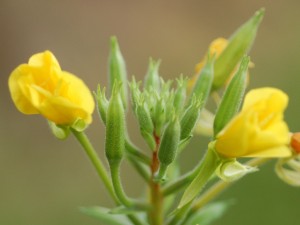0 items - $0.00
No products in the cart.
The evening primrose is a unique flowering herb that blooms (you guessed it!) only in the evening. Evening primrose oil is usually extracted from the seeds of the plant, which is found growing throughout North and South America. It has been touted as a therapeutic remedy for everything from heart disease to skin conditions. The question is, does it really work?
 Potential Therapeutic Applications
Potential Therapeutic ApplicationsThe herb was originally used by Native Americans in poultices to promote the healing of wounds and skin ailments. Later, it was taken to Europe and Japan, where many people still use it to treat any number of health complications, such as:
Oil from the evening primrose is extremely rich in omega-6 fatty acids such as linoleic acid (LA) and gamma linoleic acid (GLA), as well as antioxidants. It is these components that likely give the herb its therapeutic qualities.
Omega-6 fatty acids are essential to skin and hair growth, brain and nerve function, bone health, and a wide variety of other basic bodily processes. Antioxidants, which are also found in the evening primrose plant, are used by the body to fight and neutralize harmful particles throughout the body.
Increasing your intake of essential fatty acids can improve your health in many ways. Evening primrose oil, however, has not been shown to significantly improve cardiovascular problems or symptoms of PMS and menopause. In clinical trials, tests on skin and anti-aging have shown the most positive results.
According to the University of Maryland Medical Center, more than 30 human studies have shown evening primrose to have a positive effect on skin conditions such as dryness, scaly skin, eczema, and dermatitis.
Another study published in the International Journal of Cosmetic Science showed that, with prolonged use, the herb had the following effects on skin:
You can find a variety of products containing evening primrose oil in the Living Clean store, or read more about all-natural skincare: